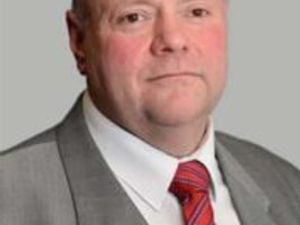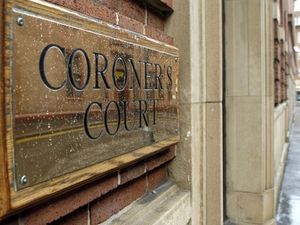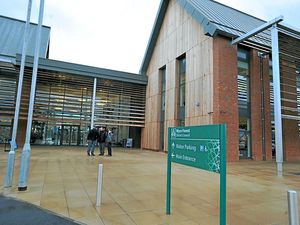Crisis housing payouts rocket at Black Country and Staffordshire councils
Millions of pounds in emergency housing payments have been forked out by councils to stop those hit by welfare reforms losing their homes.
Housing charity Shelter said the payments could be vital to stop people losing their homes but were a "quick fix" for a flawed housing system.
Discretionary housing payments are given to people who qualify for either housing benefit or the housing element of the new Universal Credit, and who are struggling with housing costs.
Figures from the Department of Work and Pensions show Walsall Council paid out £1,072,300 in discretionary housing payments to claimants in the 2018/19 financial year.
Of the total awarded in Walsall, £525,200 went to helping people who were in difficulties because of reforms in the welfare system.
In total, 1,529 payments were made to claimants during the year, averaging at £701 a piece.
A Walsall Council spokesman said: "In accordance with the priorities within the council’s corporate plan, our officers work to ensure that discretionary housing payment grants are targeted towards those who need them most.
"We work proactively to prevent homelessness and ensure that we deliver prosperous communities where housing needs are met.”
Meanwhile Wolverhampton Council paid £999,400 and of the total awarded, £426,300 went to helping people who were in difficulties because of reforms in the welfare system. There were 2,727 payments made to claimants during the year, averaging at £366 each.
In the same year, Dudley Council paid out £669,500 in discretionary housing payments. Of the the total awarded, £639,900 went to helping people who were in difficulties because of reforms in the welfare system. In total, 4,766 payments were made to claimants, averaging £140.
Councillor Laura Taylor, Dudley Council's cabinet member for housing, said: “It is always our priority to help vulnerable families and individuals who could be at risk of homelessness.
"In 18/19 we gave over £669,536 of Government funding to provide support for those most at need and we would advise anyone who is in difficulty to contact us for help.”
Sandwell Council paid out the highest amount – £1,348,500 – in discretionary housing payments in the Black Country for the year. Around £1,162,00 of that amount went to helping people who were in difficulties because of reforms in the welfare system.
The amount spent on the discretionary housing payments has increased by 77 per cent in Walsall, by 70 per cent in Wolverhampton and by 30 per cent in Dudley since they were introduced in 2013 to 2014.
Staffordshire
Stafford Borough Council paid out £127,300 in discretionary housing payments to claimants in the 2018/19 financial year.
In total, 264 payments were made to claimants during the year, averaging at £482 each.
Will Conaghan, a spokesman for Stafford Council, said: "We have been increasing our efforts to raise awareness of the scheme, especially to vulnerable groups, for example those with disabilities.
"One of the ways was to make our online application process easier to claim, and understand. We also worked with other agencies to increase awareness of these payments – such as the Citizen’s Advice Bureau, Job Centre Plus and housing providers.”
While South Staffordshire Council paid out £125,300 – and of the total awarded £59,400 went to helping people who were in difficulties because of reforms in the welfare system.
There were 280 payments made to claimants during the year, averaging at £447 each.
A spokesman for South Staffordshire Council said the authority would not be commenting.
In the same year, Cannock Chase District Council paid out £112,100 – with a total of 213 payments were made to claimants, averaging at £526 a piece.
A spokesman for Cannock Chase District Council said: "This increase in payments is actually welcome news for our more vulnerable residents living in Cannock Chase and follows on from the work the Council and its partners in the local voluntary sector, working with the DWP, have done to encourage take up of the fund.
“As a council we have updated our policy on claiming from the fund. We have provided an assisted online application process to make it easier to make a claim, identified those tenants most in need, and we now support people in rented accommodation who claim Universal Credit as well as those claiming Housing Benefit.
“All of these actions have helped increase take up and ultimately helped vulnerable residents protect their homes.”
The amount spent on the discretionary housing payments has increased by 33 per cent in Stafford; 30 per cent in South Staffordshire; and by 66 per cent in Cannock since they were introduced in 2013 to 2014.
'The payments shouldn't be needed'
Polly Neate, chief executive of Shelter, said: "Discretionary housing payments are vital in many cases and can be the difference between people losing their home or not – but they shouldn’t be a replacement for a fit-for-purpose welfare system.
“These payments shouldn’t be needed so much in the first place – they are simply a quick fix to structural problems.
"To solve the underlying crisis for good, the Government must commit to building 3.1 million social homes in the next 20 years, as well as making sure housing benefit is enough to actually cover rents.”
A DWP spokeswoman said the Government spent £23 billion a year helping people in the UK with their housing costs.
She added: "Since 2011, we have provided local authorities with over £1 billion in discretionary housing payments to protect the most vulnerable claimants.
"The allocation of this funding ensures a fair distribution across local authority areas, and is reviewed each year."
Wolverhampton and Sandwell councils have been approached for comment.





